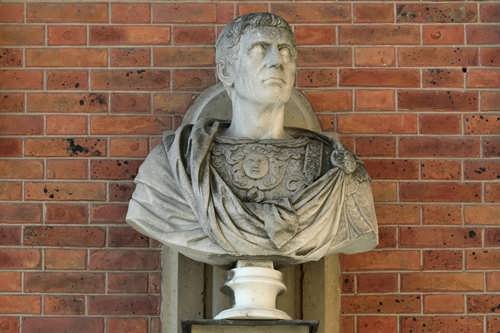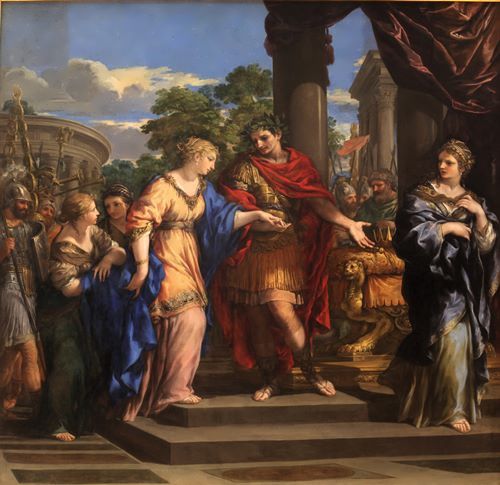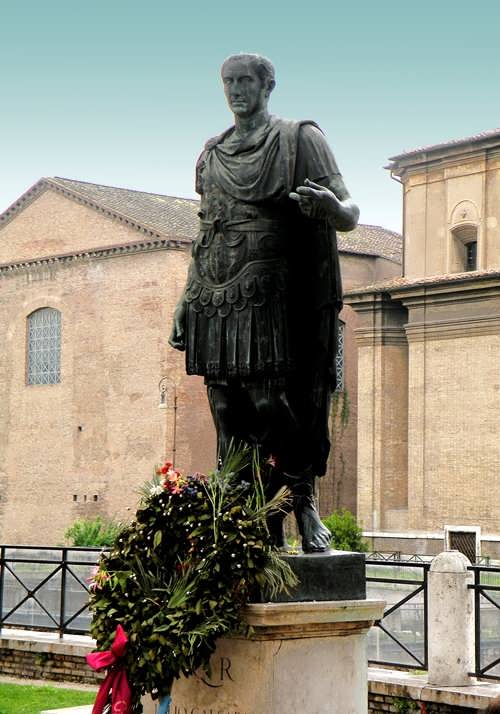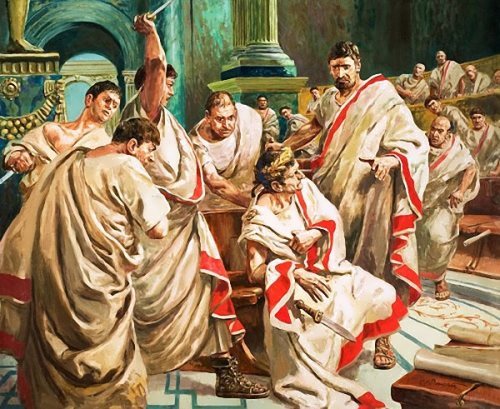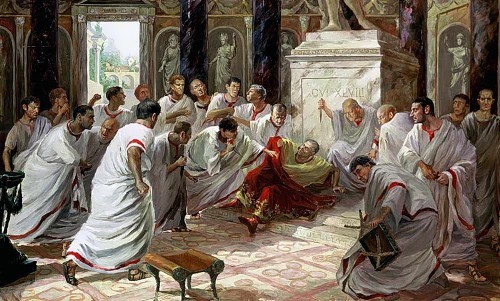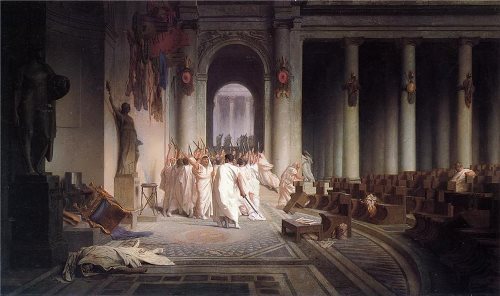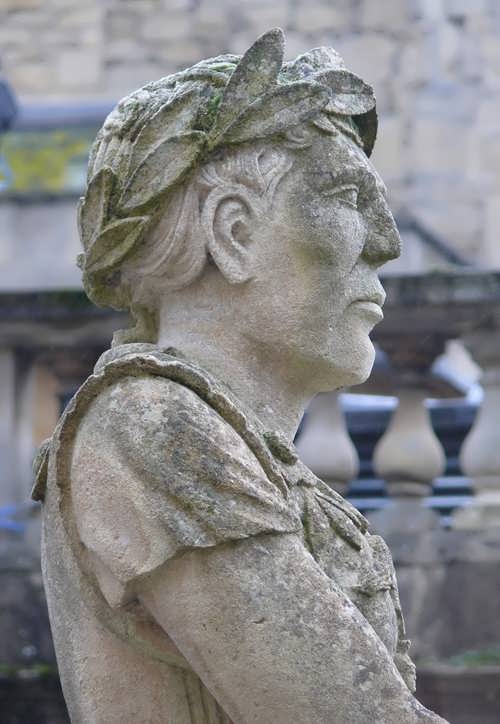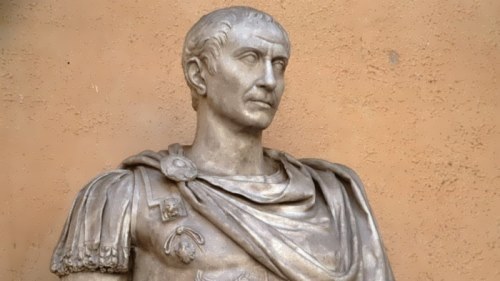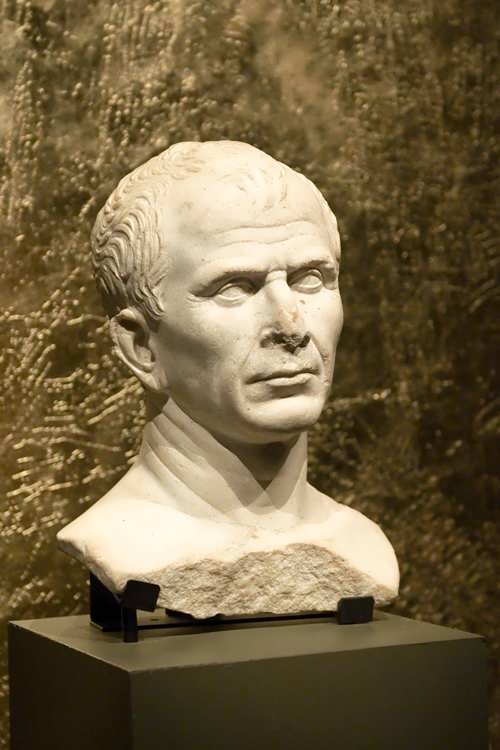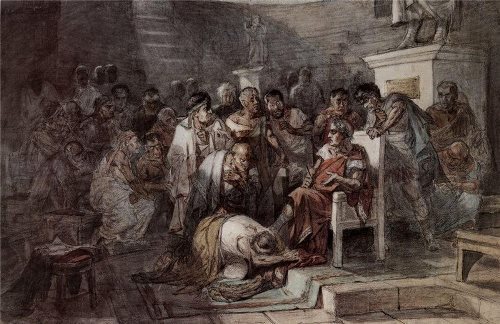Gaius Julius Caesar – brilliant Roman general
Gaius Julius Caesar was a Roman statesman and political figure, leader and writer, consul, dictator and great pontiff. He helped create the ancient Roman Empire. He was without a doubt the most significant figure in the history of Rome.
In the 60 BC he organized the first triumvirate with two influential politicians – Gnaeus Pompey the Great and Marcus Licinius Crassus. Later he spent more than eight years on the territory of modern Switzerland, France, Belgium, Germany and the UK in the Gallic War. He added a vast territory from the Atlantic to the Rhine to the Roman Republic and became famous as a talented military leader. In addition to the political and military activities Caesar is known as a writer. Due to the simplicity and clarity of style, his works are considered classics of Roman literature and used in teaching Latin language.
Gaius Julius Caesar was born on July 13, 100 BC. It is known that his father was a senator.
He became the head of his family at the age of 16, following the death of his father.
In 63 BC he successfully ran for the office of pontifex maximus (high priest of the state religion). Julius reformed the Roman calendar to what we call the Julian calendar.
Then Caesar was appointed governor of Outer Iberia (in Spain).
In 59 BC he was elected consul, the highest public office in ancient Rome. As one of two consuls, he ruled the Roman state for one year.
Later Caesar was appointed governor of northern Italy, western Balkans, and then southern France.
In 55 and 54 BC he led two campaigns into Britain with reasonable success.
In 49 BC he declared himself dictator. He began to interfere in a civil war in Egypt between Ptolemy XIII and his sister Cleopatra VII. He began a love affair with the queen and defeated her brother in battle.
In 45 BC Caesar named his grand-nephew Gaius Octavius (the future Emperor Augustus) his heir.
Marcus Junius Brutus and his brother-in-law, Cassius, agreed to a plan to kill Caesar.
On March 15, 44 BC Caesar was killed on his way to a Senate meeting.
The Roman Empire, which Caesar had effectively created, continued to dominate the Western world for centuries.
For almost 2,000 years after his death, some world leaders used a form of the title “caesar” (such as “Kaiser” in Germany and “czar” in Russia).
The ancient Romans named the month of July in honor of Julius Caesar.
Interesting facts
– At the beginning of the invasion of Africa, the army of Julius was plagued by failures. Powerful storms scattered the Roman warships in the Mediterranean Sea and Caesar arrived with a single legion to the African coast. Moreover, moving from the ship, the great commander fell down. It was a sign, and a good reason to go back for his superstitious soldiers. But Caesar grabbed sand and exclaimed: “I hold you in my hands, Africa!” Later he conquered Egypt.
– Caesar always wore a laurel wreath because he lost hair.
– Julius lost hairs, but Caesar means “hairy”.
– Caesar, like Alexander the Great, as well as Dostoevsky, suffered from epilepsy.
– Everyone knows his phrase: “Veni, vidi, vici”, he said it when he won Turkey.
– Caesar was the first who was proclaimed Divus Julius – divine Julius.
